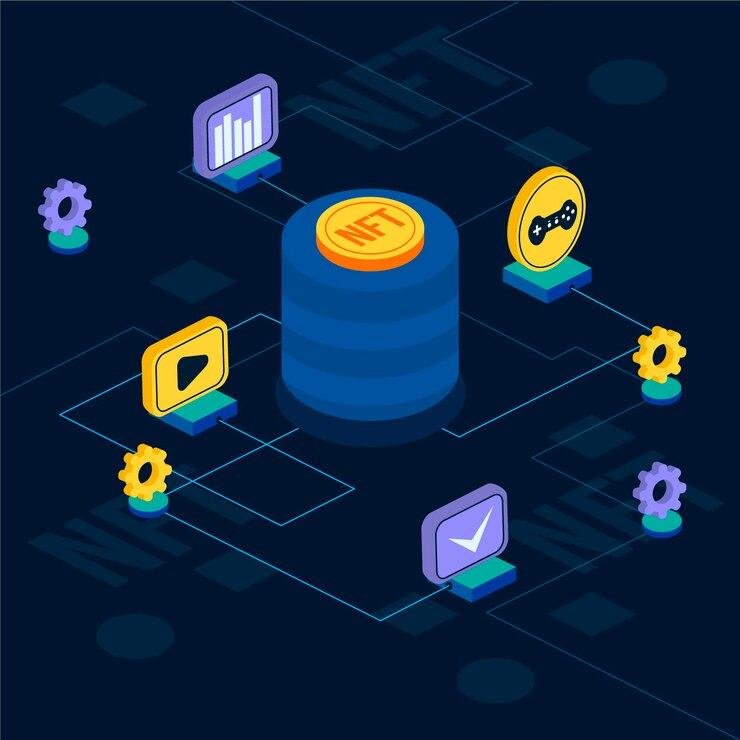In the world of finance and technology, tokenization is revolutionizing how we manage and trade assets. This process involves transforming real-world assets into digital tokens that can be traded on a blockchain. Assets tokenization development is rapidly gaining traction because it enhances liquidity, transparency, and efficiency in various industries. But what exactly is assets tokenization, and why should it matter to you? This article will delve into the concept, its development, and the reasons why it is becoming crucial for modern businesses and investors.
What Is Assets Tokenization?
Assets tokenization is the process of converting real-world assets, such as real estate, stocks, or commodities, into digital tokens using blockchain technology. These tokens represent ownership or a stake in the underlying asset. Once tokenized, these digital assets can be bought, sold, or traded on blockchain-based platforms, making the process of owning and trading assets more efficient and accessible.
How Does Tokenization Work?
The process of tokenization involves creating a digital representation of an asset on a blockchain. This is done through smart contracts, which are self-executing contracts that automatically facilitate transactions when certain conditions are met. Each token is assigned a unique identifier, and the blockchain ensures that the ownership and transfer of the asset are transparent and secure.
There are two primary types of tokenization:
- Equity Tokenization: This represents ownership in an asset, much like a share in a company. For instance, you could tokenize a real estate property, where each token represents a percentage of the property’s ownership.
- Utility Tokenization: Utility tokens provide access to a specific product or service. In this case, tokenization allows users to gain certain rights or privileges without granting them ownership of the underlying asset.
Why Is Assets Tokenization Important?
Tokenization is important because it breaks down the barriers to entry that often prevent individuals or businesses from accessing certain asset classes. It provides several key benefits that can reshape the financial landscape:
1. Increased Liquidity
One of the biggest advantages of tokenization is the enhanced liquidity it brings to traditionally illiquid assets, such as real estate or fine art. In the past, selling these assets could take months or years, as the pool of potential buyers was limited. However, tokenization allows fractional ownership, meaning that even small investors can buy and sell portions of an asset on secondary markets, increasing liquidity.
2. Fractional Ownership
Assets tokenization enables fractional ownership, which makes high-value assets more accessible to a broader range of investors. For example, instead of needing a large amount of capital to buy a property, you could own a portion of that property through tokenized shares. This fractional ownership model opens up new investment opportunities for smaller investors.
3. Transparency and Security
Blockchain technology provides an immutable and transparent record of transactions. Every transaction involving tokenized assets is recorded on the blockchain, making it easy to verify ownership and track the history of the asset. This reduces the risk of fraud and increases trust between buyers and sellers.
4. Reduced Costs and Intermediaries
Traditional asset transactions often involve multiple intermediaries, such as brokers, lawyers, and escrow agents, which can add significant costs and delays to the process. Tokenization reduces the need for intermediaries by automating the transaction process through smart contracts. This leads to faster and more cost-effective transactions.
5. Global Market Access
With tokenized assets, geography is no longer a barrier. Investors from around the world can access tokenized assets through blockchain platforms, providing global market access. This opens up new opportunities for both buyers and sellers to diversify their portfolios and tap into international markets.
Key Industries Benefiting from Tokenization
Assets tokenization is being adopted across various industries. Here are some of the sectors that are experiencing significant benefits from this technology:
1. Real Estate
Real estate is one of the most popular sectors for tokenization due to the high value and illiquid nature of properties. Tokenizing real estate allows property owners to raise capital more efficiently, while investors can easily trade fractional ownership in properties, making real estate investment more accessible.
2. Art and Collectibles
The art and collectibles market has traditionally been exclusive, with high barriers to entry for smaller investors. Tokenization enables fractional ownership of artworks, making it possible for a wider audience to invest in valuable art pieces without needing to buy an entire painting or sculpture.
3. Commodities
Tokenization is also being applied to commodities like gold, oil, and agricultural products. By tokenizing these resources, investors can trade fractional shares of commodities, increasing liquidity and making the commodity market more accessible to everyday investors.
4. Financial Assets
Traditional financial assets, such as stocks and bonds, are being tokenized to streamline trading and settlement processes. By using blockchain technology, these assets can be traded 24/7, without the need for traditional exchanges, leading to faster and cheaper transactions.
Why Should You Care About Assets Tokenization?
Whether you’re a business owner, investor, or simply someone interested in emerging technologies, assets tokenization can provide numerous advantages:
1. Investment Opportunities
Tokenization offers new ways to invest in assets that were previously inaccessible. With fractional ownership, you can diversify your portfolio by investing in various assets, from real estate to commodities, without needing significant capital.
2. Efficiency in Asset Management
For businesses, tokenization can streamline the process of managing and trading assets. With fewer intermediaries and automated smart contracts, asset transactions become faster, more secure, and cost-effective.
3. Enhanced Security
Blockchain’s decentralized nature makes it difficult for any single party to manipulate the system. This added layer of security ensures that tokenized assets are protected from fraud and unauthorized access.
4. Future-Proofing Your Business
As the digital economy grows, businesses that adopt innovative technologies like tokenization will be better positioned to thrive. By tokenizing assets, companies can access new markets, attract global investors, and improve liquidity.
Conclusion
Assets tokenization development is transforming how we perceive and manage asset ownership. By leveraging blockchain technology, tokenization brings liquidity, accessibility, and security to traditionally illiquid and high-value assets. Whether you’re an investor looking to diversify your portfolio or a business seeking more efficient ways to raise capital, tokenization offers numerous benefits. As this technology continues to evolve, it’s clear that tokenization will play a significant role in shaping the future of finance.
FAQs
1. What is the difference between tokenization and cryptocurrency?
Tokenization involves creating digital tokens that represent ownership or rights to a real-world asset, such as real estate or art. Cryptocurrencies, on the other hand, are digital currencies that function as a medium of exchange. While both use blockchain technology, tokenization specifically deals with asset ownership.
2. Can any asset be tokenized?
In theory, any asset that holds value can be tokenized. This includes physical assets like real estate, commodities, and art, as well as financial assets like stocks and bonds. However, legal and regulatory frameworks need to be in place for the tokenization of certain assets.
3. Is tokenization secure?
Yes, tokenization is highly secure due to its use of blockchain technology. The decentralized and immutable nature of blockchain ensures that ownership and transaction records cannot be tampered with.




